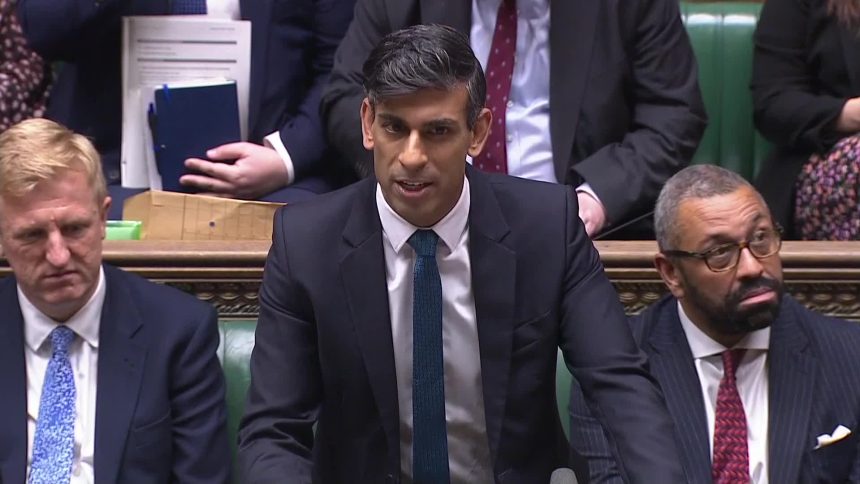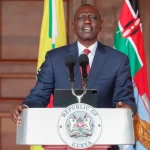Rishi Sunak is grappling with a significant rebellion from within the ranks of Tory MPs over his initiative to send certain asylum seekers to Rwanda. More than 30 backbenchers from the party’s right-wing faction are supporting proposed amendments to the legislation, scheduled for next week, aimed at raising the bar for individuals appealing deportation.
The proposed amendments underscore the depth of division within the Tory party regarding this policy, which has been designated a priority by the Prime Minister. Government officials insist that the bill allows for only a “vanishingly small” number of appeals.
Prominent figures backing the amendments include former Tory leader Sir Iain Duncan Smith and several former cabinet ministers among them former Home Secretary Suella Braverman. Ex-migration minister Robert Jenrick, a leading rebel who resigned over the draft law last month, argued that the current bill would not prevent a “merry-go-round” of individual appeals.

The Rwanda policy took center stage during Prime Minister’s Questions, with Labour leader Sir Keir Starmer accusing the prime minister of being “taken hostage by his own party.” Starmer pointed to reports suggesting doubts about the policy during Sunak’s tenure as chancellor, asserting that Sunak had been “caught red-handed” and emphasizing that the Rwanda approach wouldn’t work.
In response, the Prime Minister reiterated the government’s commitment to halting migrants crossing the Channel in small boats. Sunak criticized Labour for not presenting any “practical idea” to address illegal migration, asserting that they “can never be trusted to stop the boats.”

The bill, introduced last month after the Supreme Court ruled the initial plan to send asylum seekers to Rwanda unlawful seeks to declare in UK law that Rwanda is a safe destination for refugees. This declaration would prevent flights from being grounded on legal grounds.
Rebels argue that the bill still leaves room for individual appeals to derail the policy and seek to tighten the circumstances under which appeals would be allowed. They also want ministers to disregard injunctions from the European Court of Human Rights (ECHR) blocking flights as the default position.
While the amendments may face difficulty garnering support to pass, a group of 29 MPs could potentially jeopardize Sunak’s 56-seat majority if they vote against the bill at a later stage. Speaking on the BBC Radio 4’s Today program, Jenrick did not rule out the possibility of voting down the entire bill if their proposed changes were unsuccessful.
The rebels argue that the current version of the bill is destined to fail and lacks a “sustainable deterrent” to prevent people from crossing the Channel to claim asylum. They advocate for restricting appeals to deportations to specific cases, such as pregnant women and those unfit to fly.
While ministers might consider concessions to win over rebels, it is unlikely to happen until the bill reaches its final stages in Parliament. The government is also facing pressure from more liberal One Nation wing Tory MPs, who argue that further tightening the bill could breach international law.
The Rwandan government has threatened to withdraw from the scheme if it fails to comply with international obligations. Downing Street stated that Sunak would consider amendments from Tory MPs, but any changes that could “jeopardize” the UK’s deal with Rwanda would not be accepted, emphasizing the need for a bill with a solid legal argument that sustains the scheme.








